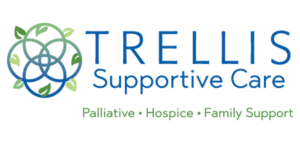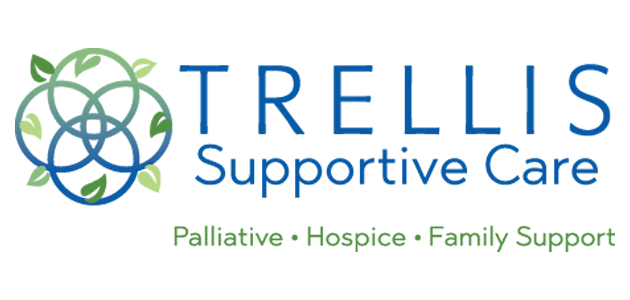Because We Care
Practical tips for family caregivers
June/July 2019
This month, we look at rumination: when reflection goes awry and creates more harm than good. We also continue our series on aphasia: the loss of language abilities and what you can do to help your loved one communicate effectively. Last, June is National Elder Abuse Awareness Month. With regard to financial abuse, credit cards have become safer, but now scammers are trying new angles. A few simple strategies can go a long way toward protecting your loved one.
Getting out of the mental spin cycle
 Do you find yourself in a repetitive cycle of reliving an exchange over and over? Reflecting on experiences gone badly is one way we learn. We think about what happened and look for insights that might promote a positive outcome in a similar situation next time.
Do you find yourself in a repetitive cycle of reliving an exchange over and over? Reflecting on experiences gone badly is one way we learn. We think about what happened and look for insights that might promote a positive outcome in a similar situation next time.
But sometimes reflection can be unhealthy. If you find yourself in a memory loop continuously going over a negative experience, it may be more rumination than reflection. Instead of finding a way toward closure, it can be more like picking an emotional scab and not letting the wound heal.
Research suggests that a process of self-distancing can help us gather useful insights without getting stuck in a quagmire of replays. Try this:
- Describe the event in the third person. Imagine you are an observer of the situation. If you were someone watching the dynamic, what events occurred? Write the “story” from this perspective.
- Avoid the words “I” and “you.” Instead, use the names of the individuals involved. “Sarah told Bob she thought their dad was not taking all his medicines. Bob, who orders their father’s medicines through the pharmacy, got angry about her comments.”
- Answer the question “Why?” and list many possible answers. In your description, address why the people did what they did. Then ask yourself, “Do I know for sure that’s the reason?” Think of several alternate explanations. For instance, Bob might find himself exploring whether Sarah brought up the issue because she thinks he’s incompetent, or because she’s noticing something different about their dad’s memory.
- Describe the event from the future. Project yourself a week or a month down the road. Maybe a year down the road. How are you likely to tell the story? This perspective can reduce the emotional punch of the event and help you distill it down to its salient features.
Communicating with aphasia
 If your loved one suddenly developed difficulty with speaking, he or she probably has aphasia, typically from a stroke or traumatic brain injury. Slow or garbled speech can be frustrating for everyone.
If your loved one suddenly developed difficulty with speaking, he or she probably has aphasia, typically from a stroke or traumatic brain injury. Slow or garbled speech can be frustrating for everyone.
Recovery is enhanced by following the advice of speech and occupational therapists. There are even apps to help! Your support is invaluable in terms of bolstering self-worth and confidence.
Try these aphasia communication tips:
- Remove distractions. Turn off the TV or radio. Move to a room that is quiet.
- Allow time. It takes more effort to organize thoughts and form words.
- Let them find the right words. Filling in and guessing what is meant may seem helpful. It actually undermines self-esteem.
- Listen patiently. Communication is more than an exchange of facts. It’s a way to express personality and competence. As a listener, relate as if you have all the time in the world.
- Confirm your understanding. Repeat back what you think was said.
- Keep it simple. Speak in short sentences. Avoid a long string of ideas or requests.
- Consider apps. There are many mobile- and tablet-based apps for aphasia. Some provide assistance with speech exercises. Others offer symbols your relative can point to instead of speaking. Some even help your loved one stay engaged with others by sending emails and texts based on the symbols!
Create a Communication Card
To help your relative stay engaged and be independent, create a “business card” he or she can pass to waiters, receptionists, merchants, or service providers. Personalize it appropriately:
- I have aphasia: I have trouble speaking.
- No need to shout: I am not deaf.
- I do not have dementia: I think very clearly.
- Please be patient: Give me time to find my words.
Common elder scams
 Financial abuse of the elderly is thriving. Advise your loved ones to be on the alert for these common scams:
Financial abuse of the elderly is thriving. Advise your loved ones to be on the alert for these common scams:
Government impostors
Individuals call saying they represent Social Security, Medicare, the VA, or the IRS. They describe a problem with an account. Or taxes owed. Then they ask for name, date of birth, and Social Security number for “verification.” They may claim that arrest is pending and money is required. Another variation requests bank account information to “direct deposit an increase in monthly payments.”
Grandparent scam
Someone claiming to be a grandchild calls. They are distressed and say they are in trouble and need a money transfer. Then a “policeman” or “doctor” gets on the phone. They may add credibility by mentioning details gleaned from the true grandchild’s Facebook page. Another tip-off? The “grandchild” will likely say, “Don’t tell Mom or Dad!” (Thieves thrive on secrecy.) Average scam: $2000!
Loans taken out
Scammers can use personal information to secure a loan at any bank. It could be months before your relative finds out a car loan, mortgage or line of credit has been taken out under his or her name. Your loved one could be liable.
Tips for your relative:
- Never give out sensitive information unless you initiated the contact. Official organizations do not initiate calls. Even an official-looking email with a link to an official-looking website can be a scam. Most legitimate communication comes by regular mail.
- Hang up immediately if they talk about jail or cutting off payments. Threats like these are bogus. Social Security, Medicare, and the VA do not suspend accounts or stop payments like this.
- Put a freeze on all credit reports. New loans or accounts cannot be opened without personal authorization.
- Sign up with AARP Watchdog Alerts. Go to aarp.org/money/scams-fraud/ to learn about current scams. Or call 877-908-3360.

